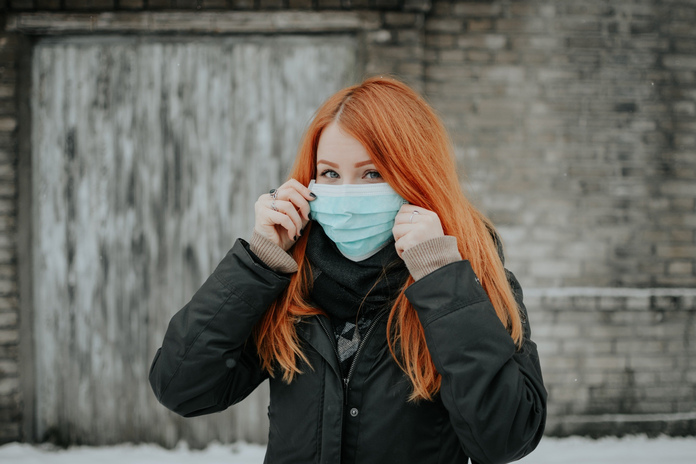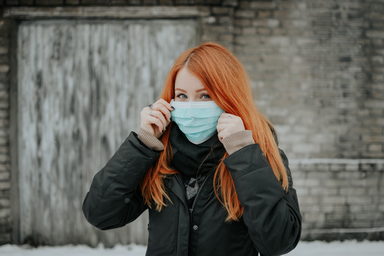We’ve all heard the news: COVID-19 vaccines are on their way, and we might possibly all be able to be vaccinated by summer. Hope is in the air, and it’s tempting to think that 2021 might bring us a return to normalcy. And although all this news is extremely exciting after a whole year of staying inside and social distancing, we have to remember not to get ahead of ourselves. Until vaccines are available, we need to remember to do everything we have been doing: social distancing, avoiding large gatherings, and, most importantly, wearing a mask.
Among the race to develop vaccines are Pfizer and Moderna, who have already exported hundreds of thousands of vaccines to each state in the United States. The vaccines are being released to the public by need. According to the CDC, healthcare personnel, essential frontline workers, residents of long-term care facilities, and adults over the age of 74 will receive the first doses of the vaccine. Many people in the United States and United Kingdom have already received their first doses of the vaccine; depending on the vaccine, they will receive their second dose between 21 to 28 days after the initial dose. From there, vaccines will slowly be distributed to all other adults.

However, many college students are wondering where they fall in the line for the vaccine. While it is obvious and extremely important that frontline workers and older adults receive the vaccine first, a lot of college students suffered last semester from loneliness, stress, anxiety, and/or fatigue. College students are also very at risk for the virus, and this past semester had a detrimental effect on students’ motivation, health, and overall mindset.
Christina Altomara, a sophomore at Stevens Institute of Technology, says, “The semester was really hard because there was no separation from the classroom — it always felt like there was work to get back to.”
In addition to the pandemic affecting the way classes were run, it also affected the way students socialized on campus. Gabriella Vicidomini, a sophomore at the University of South Carolina, says she struggled a lot with the pandemic’s “side effects,” which she defined as “not having as much of a social life, struggling to keep motivated, and being worried about getting sick.” She also found that this semester negatively affected her mental health, saying that being stuck in her apartment caused her to have no motivation to do schoolwork.
Many college students also feel that their universities have increased the amount of work during the pandemic. Hannah Wichard, a sophomore at Ithaca College, says, “I felt that I was being given more work than I would have been given if I was on campus, which caused me to become consistently stressed throughout the entire semester.”

Students are incredibly hopeful that this upcoming spring semester may bring new beginnings, and they are relying on the vaccine to be distributed at their schools.
But the general questions on students’ minds are: will my school make the vaccine mandatory? Will my school receive the vaccines and be able to store them at the proper temperature? Will I be able to get vaccinated before I go home for summer break?
College students have so many unanswered questions as we enter this spring semester — maybe even more questions than we had last semester. All we want is to go back to our normal college lives, and it’s easy to get ahead of ourselves by being lazy with mask-wearing and social distancing. However, cases are worse now than ever before, so we all need to be responsible and considerate of other people’s comfort levels.
Keep track of the virus by updating yourself on daily news, doing research on the number of cases in your area, and by reading the CDC guidelines. Just because someone you know claims that we don’t need to wear masks anymore, it doesn’t mean you should believe them. Don’t jump to conclusions — no matter how tempting it may be. We need to avoid spreading misinformation by keeping ourselves in the know and staying up to date with the latest guidelines and restrictions. That way, we can keep our friends, roommates, and loved ones in check.

2020 is finally over (thank god), but the pandemic is definitely not over. Don’t get lazy with mask-wearing and don’t fall back into that trap of returning to “normal” — we are so close to the end, so just hold out a little longer. My biggest piece of advice is this: stay strong. If your family is having a large gathering, just Zoom into the party instead. If your friends want to get together with a lot of people, tell them you’re not comfortable going. You can’t always control what other people do, but you can control what you do. So be smart and try to keep those you love safe.
And masks aren’t the only thing keeping us safe — we should still be washing our hands regularly, practicing social distancing, and avoiding large gatherings. I understand that social distancing can take a toll on a lot of people, but there are ways to fight those social distancing blues.
I know it’s cold, but sitting around an outdoor fire with friends (socially distanced, of course) is actually really fun! There are definitely ways to see friends safely this winter break, and outdoor activities are the perfect solution. Ice skating, skiing, snowboarding, or tubing are just some of the ways you can get together and have fun!

Wearing a mask is so important, and it’s not too difficult. So buy a cute bundle of masks and make some stylish outfits to wear out in the world! Not to mention, masks help a lot with the cold weather if you go to school in a colder climate.
We all want a vaccine more than anything, but in the meantime, we have to remember to be patient, remain safe, and wear a mask.


